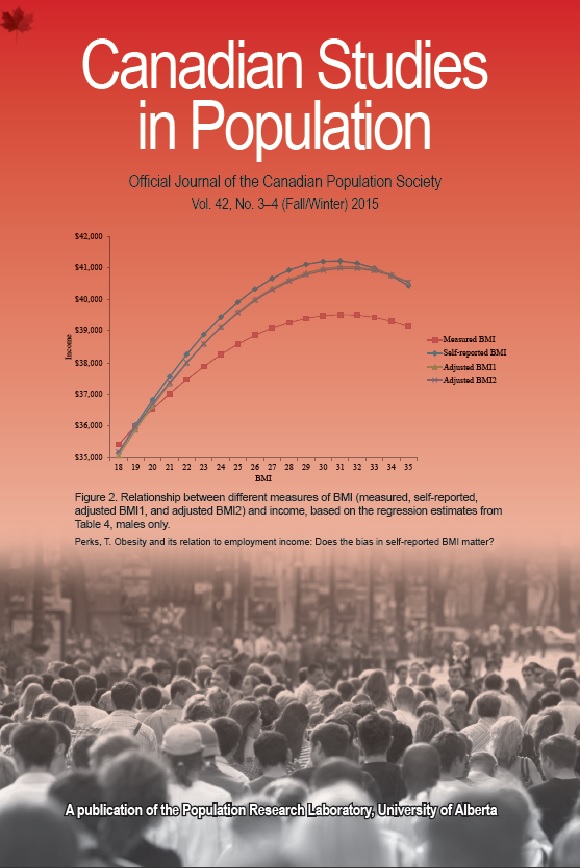Obesity and its relation to employment income: Does the bias in self-reported BMI matter?
DOI:
https://doi.org/10.25336/P6SS36Keywords:
body mass index, bias, income attainment, measured and self-reported, correction factorsAbstract
This study explores what difference, if any, the bias in self-reported body mass index (BMI) has on our understanding of the relationship between body size and income attainment. To accomplish this, aggregated data from Cycle 1 and Cycle 2 of the Canada Health Measures Survey, in which information on both self-reported and measured BMI was collected, are used. Based on subsamples of female and male employees, OLS regression analyses contrasting the effect of self-reported and measured BMI on income show that for women, self-reported BMI leads to underestimates of a negative body size effect, whereas for men, self-reported BMI leads to overestimates of a positive body size effect. Additional analyses examining the appropriateness of correction factors to improve the accuracy of self-reported BMI effect estimates suggest correction factors do little to reduce these systematic errors.Downloads
Published
Issue
Section
License
Copyright (c) 2019 Thomas Alexander Perks

This work is licensed under a Creative Commons Attribution 4.0 International License.
The following copyright statement applies to content published in Volumes 1 - 45 of Canadian Studies in Population.
Authors retain copyright and grant the journal right of first publication with the work simultaneously licensed under a Creative Commons Attribution License that allows others to share the work with an acknowledgement of the work's authorship and initial publication in this journal.
Authors are able to enter into separate, additional contractual arrangements for the non-exclusive distribution of the journal's published version of the work (e.g., post it to an institutional repository or publish it in a book), with an acknowledgement of its initial publication in this journal.
Authors are permitted and encouraged to post their work online (e.g., in institutional repositories or on their website) prior to and during the submission process, as it can lead to productive exchanges, as well as earlier and greater citation of published work (See The Effect of Open Access).



